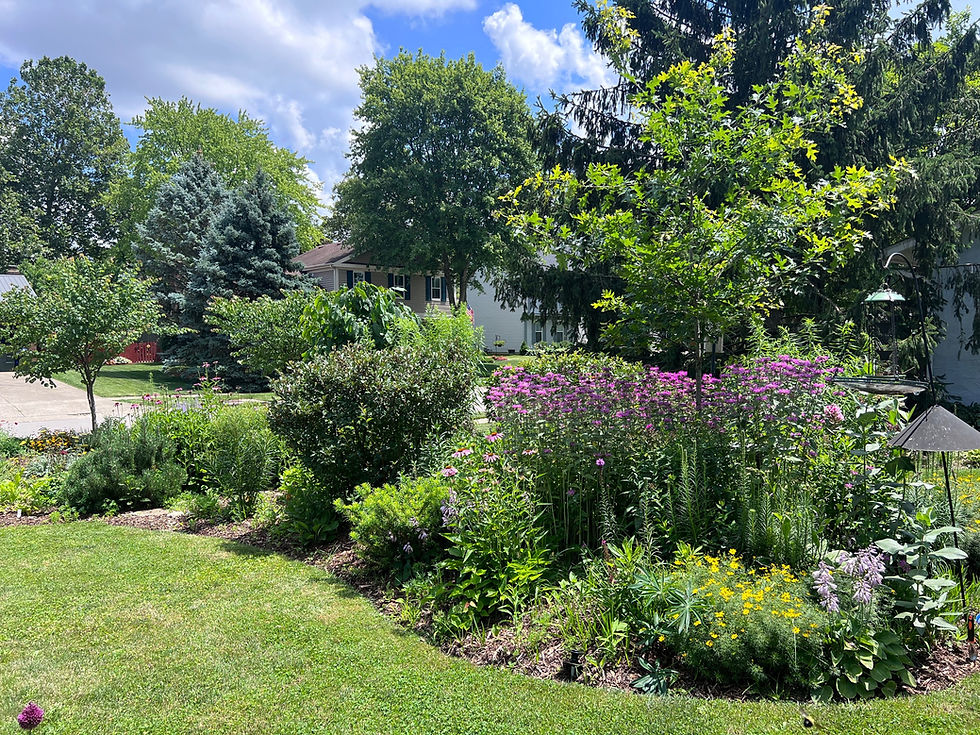Annuals vs Perennials...which flowers to choose?
- Cathy Tiffany

- Feb 13, 2024
- 2 min read
If you ever thought about starting a small flower garden, whether it's to attract pollinators (hopefully!) or just for pretty flowers to look at, it's good to know the difference between an annual and perennial.
Annuals are flowers that need to be planted every year. For us in Ohio, think zinnias, marigolds, cosmos and basil. Perennial flowers come back every year, going dormant in the winter and re-growing the following spring/summer. Annuals (for our Zone see below), cannot survive our (Ohio) winters and perennials can. Beware of blindly hearing or reading something is a "perennial".... I got nailed on this last year: A Black and Blue Salvia that I thought was a perennial, is a perennial...in Zones 9-10. I live in Zone 6b (Central Ohio). Zone 6 has colder winters than Zone 9 (Parts of California, Texas and Florida), so the plant wont survive the winter, making it an annual in Ohio. Make sense? Knowing this fact is very helpful when planning your garden.
So, which types of plants to choose, annuals or perennials?
To make your gardening life the easiest, I'm a big fan of planting perennials in your yard overall and annuals in spots - scatter some zinnias, cosmos and marigolds in with your perennial sun loving flowers and annuals in your patio and porch pots and flower boxes.
I'm always perplexed by the folks that plant hundreds of dollars worth of petunias and begonias all over their landscaping (which don't feed pollinators, by the way), only to have to do it all again the next year. I have both of those in pots, because they do add fun pops of color, but I spend about $25 vs hundreds. I'm a high energy person with a passion for planting, but I don't want to spend hours and hundreds planting masses of flowers that are gonna die in a few months.
Perennials all over, annuals in spots and pots. That's my motto!
How will I know which is which?
Any flower you buy is clearly marked "perennial" (and should have the zone marking) or "annual". If for some reason it doesn't, check with the Almighty Google and confirm.
Hope this helps! Happy Planting!
From left to right: Aromatic Aster (perennial), Black-eyed Susan (perennial) and Zinnia (annual)












Comments